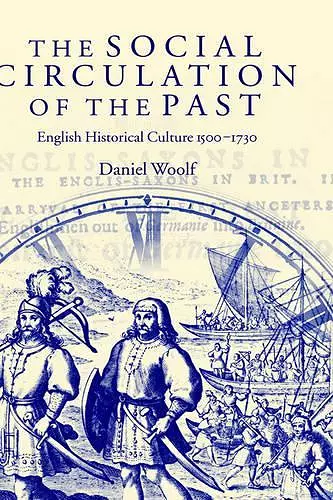The Social Circulation of the Past
English Historical Culture 1500-1730
Format:Hardback
Publisher:Oxford University Press
Published:10th Apr '03
Currently unavailable, and unfortunately no date known when it will be back

This book investigates the changing historical culture in England between the beginning of the sixteenth century and the early eighteenth century. Based on a wide variety of manuscript and printed sources from local and central repositories, it focuses on the social framework within which historical knowledge was generated, modified, and preserved, rather than on historiography or historical method. Woolf begins his study by examining the ways in which early modern people acclimatized themselves to accelerating changes in their physical, social, religious, and economic environments. A developing, if uneasy, accommodation to change went hand in hand with shifting attitudes to the acceptability of novelty and innovation. The family was the central social unit throughout most of this time, and Woolf examines views of ancestry and heredity with a particular emphasis on the circulation of genealogical knowledge and its status relative to other forms of knowledge about the past. The third part of the book turns to the subject of antiquarianism, investigating the relationship between the many varieties of antiquarian activitiy which focused on a visible and tangible past, and the emergence of a visual sense of history during the seventeenth century. It is argued that artefacts ranging from fossils to funeral urns were exchanged in an 'archaeological economy' among local discoverers of antiquities, most of whom were of humble station, local gentry and clergy, and university- or London-based antiquaries. It is through the force and volume of this type of exchange, rather than the scholarly contributions of particular authors, that England became much more historically aware by the early eighteenth century. The fourth and final part takes this line of argument in a different direction, analysing the study of recollections and memories of the past. Beginning with an examination of the place of memory in English life generally, Woolf argues that memory as a faculty existed in tension with writing (for instance, with the emergence of a much more record-orientated local archival system). The growing quantity of published historical material had considerable impact on community memories of the past, threatening to overwhelm the latter with an emerging national 'master-narrative' of history. At the same time, local communities managed to preserve a rich variety of beliefs about their surroundings, beliefs that testify to the strength of connection...
... dense and informative work. * History Today *
- Winner of Winner of the John Ben Snow Prize 2004.
ISBN: 9780199257782
Dimensions: 241mm x 161mm x 29mm
Weight: 900g
440 pages